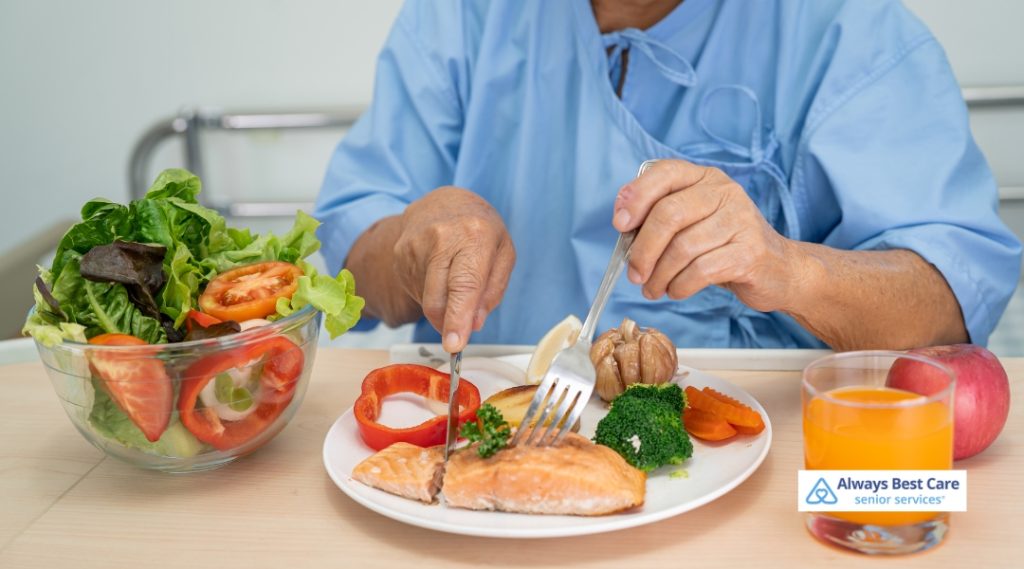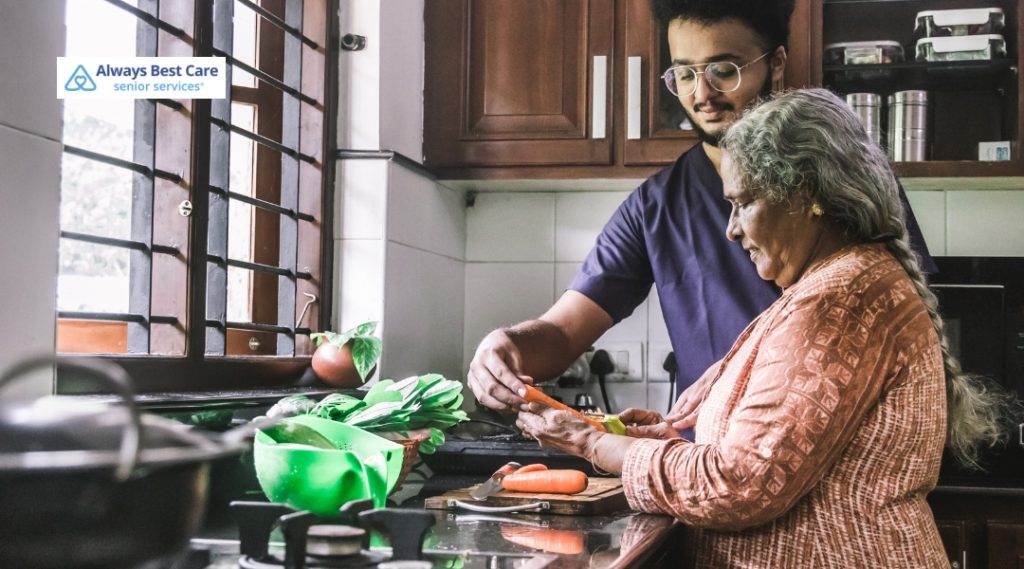Encouraging Healthy Eating: How to Boost Your Senior’s Appetite in Greater Boston, MA

As we age, maintaining a healthy appetite can become a challenge. Many seniors face a decline in appetite due to various factors, including changes in taste and smell, medication side effects, dental issues, or even feelings of loneliness.
If left unchecked, this can lead to weight loss, malnutrition, and decreased energy levels, impacting overall health and independence. Encouraging healthy eating habits is crucial for seniors, and there are several ways to make meals more enjoyable and nutritious.
What you will learn:
- The most common reasons seniors in Greater Boston may experience a loss of appetite.
- Practical ways to make meals more appealing and enjoyable.
- Tips for overcoming eating challenges.
- How compassionate in-home care from Always Best Care of Greater Boston can provide personalized support, meal preparation, and companionship to help your loved one maintain healthy eating habits and independence.
Table of Contents
Understanding the Underlying Causes
Before we can encourage healthy eating, it’s essential to understand why a senior might not be eating well. Common reasons include:
- Medication side effects: Nausea or dry mouth from medications can suppress appetite.
- Dental issues: Ill-fitting dentures or mouth pain can make eating uncomfortable.
- Difficulty chewing or swallowing: Certain health conditions can make eating a challenge.
- Emotional factors: Depression, isolation, or grief can lead to a loss of interest in food.
- Chronic health conditions: Conditions like diabetes or heart disease can affect appetite.
- Loss of taste or smell: Age-related changes can make food less appealing.
It’s crucial to consult with a doctor to rule out any medical causes or medication-related side effects that might be affecting appetite. Addressing these underlying issues is the first step toward improving their relationship with food.

Making Meals More Appealing
Seniors are more likely to eat when food looks and smells good. Here are some tips to enhance mealtime:
- Visual appeal: Use colorful fruits and vegetables, and serve food on attractive plates.
- Flavor boost: Add herbs and spices to enhance flavor without excess salt.
- Ambiance: Soft lighting and pleasant background music can create a cozy atmosphere.
Serving Smaller, More Frequent Meals
Large meals can be overwhelming for those with smaller appetites. Try offering:
- Smaller portions: Three small meals and two to three snacks throughout the day.
- Nutrient-dense snacks: Yogurt, smoothies, cheese, or nuts provide calories and essential nutrients.

Sharing Meals Together
Eating is often a social activity. Sharing meals with your loved one can make a big difference. If you can’t be there regularly, arrange for other family members, friends, or a caregiver to join them.
Making Eating Easier
If chewing or swallowing is difficult, focus on:
- Soft foods: Scrambled eggs, mashed potatoes, oatmeal, or soups are easy to eat.
- Proper dentures: Ensure dentures fit well and address any mouth pain.
- Texture adjustments: Adjust food textures or temperatures for comfort.

Planning Ahead and Getting Creative
Meal planning can eliminate stress and encourage variety. Involve your loved one in choosing meals and groceries so they feel more engaged. Preparing meals ahead of time, trying new recipes, and incorporating favorite comfort foods can all help renew their interest in eating.
How We Can Help
At Always Best Care of Greater Boston, our experienced caregivers can assist with meal planning, grocery shopping, and preparing nutritious meals tailored to your loved one’s preferences and dietary needs. Whether it’s encouraging hydration, adjusting meals for swallowing difficulties, or simply providing companionship during mealtime, we’re here to help make eating a positive experience again.

FAQ
Q: What are the common reasons for decreased appetite in seniors?
A: Common reasons include medication side effects, dental issues, difficulty chewing or swallowing, emotional factors, chronic health conditions, and loss of taste or smell.
Q: How can I make meals more appealing to seniors?
A: Enhance visual appeal with colorful foods, use herbs and spices for flavor, and create a cozy atmosphere with soft lighting and music.
Q: What are some tips for serving meals to seniors with smaller appetites?
A: Offer smaller portions more frequently throughout the day, and include nutrient-dense snacks like yogurt or nuts.
Q: How can I make eating easier for seniors with difficulty chewing or swallowing?
A: Focus on soft foods like scrambled eggs or soups, ensure proper denture fit, and adjust food textures or temperatures for comfort.
Ready to Support Better Nutrition for Your Loved One?
Our compassionate caregivers offer mealtime support, grocery assistance, and personalized encouragement to help boost appetite and improve well-being. Let’s make every bite count—reach out to us today to learn how we can help.
If your aging loved one is struggling with appetite loss or needs support with daily routines, contact Always Best Care of Greater Boston at (617) 489-9000 to schedule a care consultation. Our compassionate caregivers are here to support health, wellness, and independence—starting right at the kitchen table.





